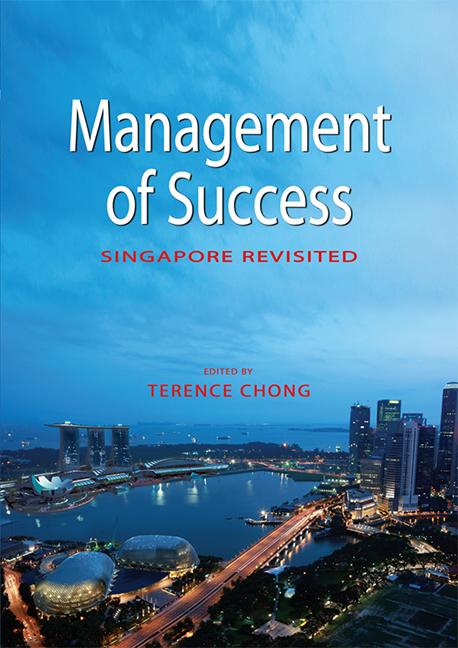Book contents
- Frontmatter
- Contents
- List of Tables and Figures
- Foreword
- Message
- Quote
- Preface
- The Contributors
- 1 Introduction: The Role of Success in Singapore's National Identity
- SECTION 1 SINGAPORE IN THE BIGGER PICTURE
- SECTION 2 LEADERSHIP, POLICY AND POLITICS
- SECTION 3 THE RESTRUCTURING OF THE ECONOMY
- SECTION 4 THE TRANSFORMATION OF SOCIETY
- SECTION 5 THE LAW
- SECTION 6 MODIFICATION OF THE ENVIRONMENT
- SECTION 7 COMMUNITY AND NATIONAL SECURITY
- SECTION 8 LIFE IN SINGAPORE
- Index
Foreword
Published online by Cambridge University Press: 21 October 2015
- Frontmatter
- Contents
- List of Tables and Figures
- Foreword
- Message
- Quote
- Preface
- The Contributors
- 1 Introduction: The Role of Success in Singapore's National Identity
- SECTION 1 SINGAPORE IN THE BIGGER PICTURE
- SECTION 2 LEADERSHIP, POLICY AND POLITICS
- SECTION 3 THE RESTRUCTURING OF THE ECONOMY
- SECTION 4 THE TRANSFORMATION OF SOCIETY
- SECTION 5 THE LAW
- SECTION 6 MODIFICATION OF THE ENVIRONMENT
- SECTION 7 COMMUNITY AND NATIONAL SECURITY
- SECTION 8 LIFE IN SINGAPORE
- Index
Summary
On a recent visit to Beijing (March 2008) for the Lien Ying Chow Legacy Fellowship Council, I was privileged to meet up with several researchers from three Chinese “think tanks”, one of which was the Chinese Communist Party School in China's capital. We were engaged for three hours on the topic “ruling with the consent of the people”.
In the Chinese political lexicon, there is a classic Chinese saying that “an emperor must have the mandate of heaven to rule”, and he rules only “with the consent of the people”. In today's political context, the right to govern goes to the political party winning the most number of parliamentary seats in a general election. But whether the mandate to rule is won in a general election or by force of arms when one dynasty overthrows another, no emperor or government can rule without the consent of the people.
In my view, it is too simple for “democrats” to argue that the only manifestation of consent is through the ballot box. We all know that the ballot box can be stuffed and the will of the people perverted by bribes and corruption. It is also true that effete, corrupt and tyrannical regimes can and, indeed, should be overthrown by force, if necessary. I am told that a basic tenet of Chinese political philosophy goes so far as to advocate that it is the duty of good men to overthrow a bad emperor. Contrary to the perception of arch conservatives, the Chinese elite are as passionate about obtaining the consent of the people as much as “true blue” democrats in the West.
Chinese thinkers through the ages believe that improving the livelihood of the people is the foremost duty of the state. So it is with us in Singapore. Had we not concentrated on creating employment opportunities for our people, Singapore today would not be very different from countries much larger and better endowed than ourselves wracked by unemployment and racial conflicts seeded in poverty. East Asian countries or economies such as China, Japan, South Korea, Taiwan, Hong Kong and Singapore all believe that improving the livelihood of their people is the only way to achieve social harmony. In turn, harmony provides choice in selecting leaders. Choice through universal suffrage is one, but not the only, manifestation of choice.
- Type
- Chapter
- Information
- Management of SuccessSingapore Revisited, pp. xi - xivPublisher: ISEAS–Yusof Ishak InstitutePrint publication year: 2010

